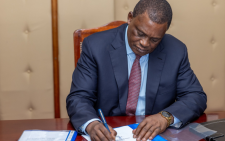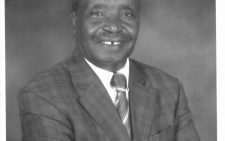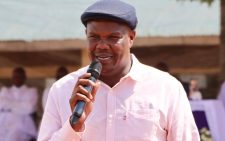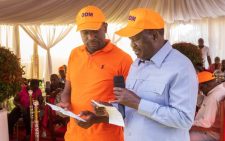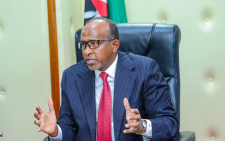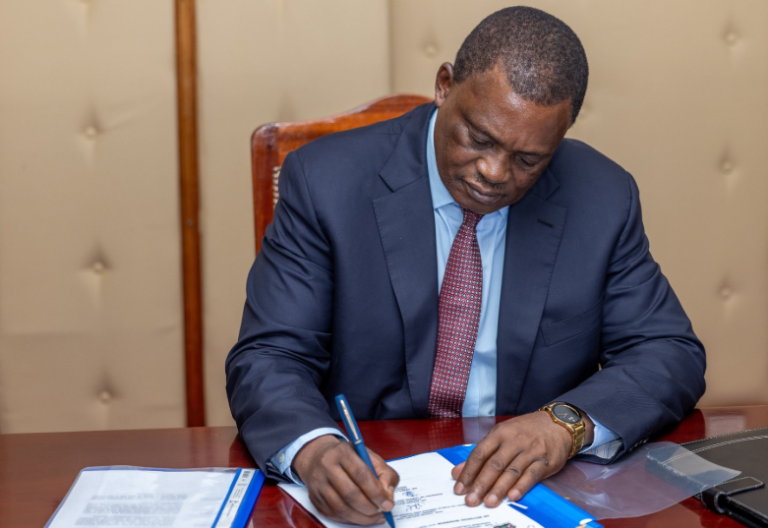Teacher, health interns to be hired as Ruto signs bill
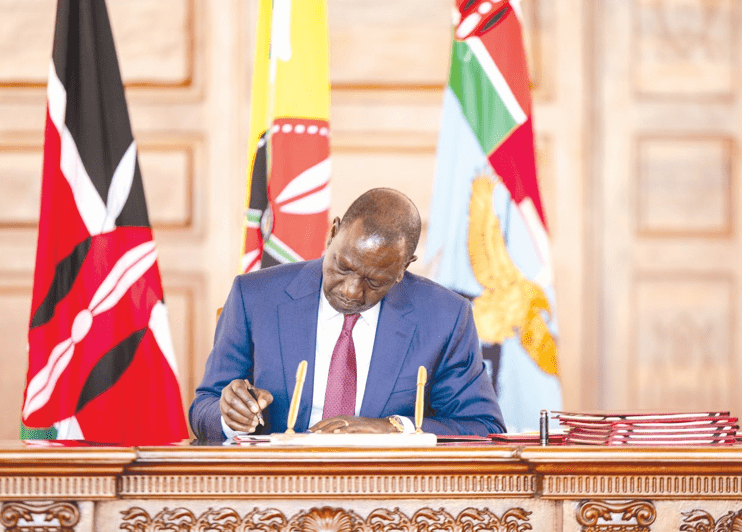
It is now official that 46,000 Junior Secondary School intern teachers and 1,210 medical interns will be hired after President William Ruto signed the Supplementary Appropriation (No. 2) Bill 2024 yesterday.
Also set to benefit are 153,292 students who will join universities in September after the government allocated Sh71 billion to fund higher education.
Of this amount, Sh23 billion will go to universities for students under new Differentiated Unit Cost funding model, while Sh31.3 billion and Sh17 billion will go to the Higher Education Loans Board and University Funding Board, respectively, for loans and scholarships.
Reads a brief from the President: “In this regard, the bill seeks to create a balance by reducing recurrent expenditure while safeguarding critical essential expenditure in the agriculture, health and education sectors among others.”
Revenue shortfall
The bill, crafted following the withdrawal of the 2024 Finance Bill, proposes Sh145 billion in total reductions for the national government, comprising Sh40 billion from recurrent expenditure and Sh105 billion from development.
The President said that while it was prudent to reduce expenditures by the amount equivalent to the anticipated revenue shortfall of Sh344.3 billion, this was not tenable given the delicate balance between austerity measures and cushioning the livelihoods of the people and the economy.
Reads the brief: “This bill is unique in that it has been prepared, considered, and approved barely a month after the assent to the Appropriation Act for FY 2024/25. The approved estimates were premised on additional revenue collection from the proposed measures in the Finance Bill 2024.”
It adds: “The bill proposes reductions to recurrent and development expenditure for the three arms of government, constitutional commissions and independent offices.”
The decision to reinstate money meant for education follows a push by the Education Committee, chaired by Tinderet MP Julius Melly, to have money meant for various votes returned.
The move came after Basic Education Principal Secretary Belio Kipsang said that 3.5 million students will not sit for the 2024 national examinations and assessments after the entire budget of Sh5.023 billion meant for exam waivers was removed.
Of the students, 1,264,842 will sit for Grade 3 exams, 1,313,913 for the Kenya Primary School Education Assessment and 965,501 will sit for Kenya Certificate of Secondary Education examination.
In Health, besides the hiring of medical interns, Sh12.5 billion will be spent to support healthcare reforms and promote Universal Health Coverage (UHC).
Of that money, Sh4 billion is for the primary healthcare fund, Sh4 billion for contracted UHC workers, and Sh4.5 billion for allowances and equipment for community health volunteers.
Supporting farmers
In the agricultural sector, the bill has set aside Sh20 billion to directly support farmers in efforts to enhance production and productivity.
Of that money, Sh7.5 billion is for fertiliser subsidies, Sh3 billion for the Coffee Cherry Fund, Sh2 billion to waive coffee farmers’ debts, Sh2 billion to purchase of milk coolers, Sh1.5 billion for milk price stabilisation, and Sh700 million to support sugar farmers.
The bill has also provided for carryovers of expenditures that had not materialised by the close of the previous fiscal year due to revenue shortfalls.
The carryovers include pension payments amounting to Sh23.8 billion and funding for the National Government Constituencies Development Fund amounting to Sh13.5 billion.
To improve the terms and conditions of officers in security organs, the bill sets aside Sh3.5 billion for enhancing remuneration for them in line with the recommendations of the Report of the National Taskforce on Police Reforms.
Reads the report: “This is to promote the dignity and living standards of the officers in the security sector.”
As for reductions, of the total Sh145.7 billion, the Executive will take a hit of Sh139.81 billion; Parliament Sh3.7 billion; and the Judiciary Sh 2.1 Billion.
The highest recurrent expenditure reductions include those of the State House and the Deputy President (Sh6 billion); the National Treasury (Sh7 billion); various development projects under medical services (Sh6.9 billion); and road projects and transport sector projects (Sh17.3 billion).
